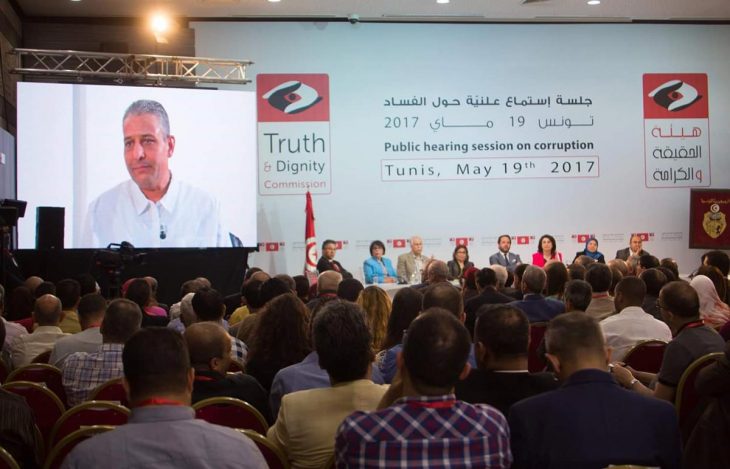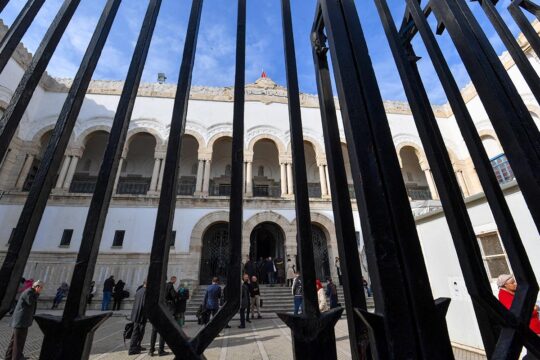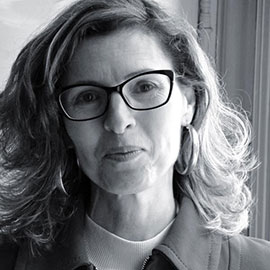"The Truth and Dignity Commission has recovered 745 million Tunisian dinars [220 million euros] for State coffers thanks to the arbitration and conciliation mechanism. We could have done better if the State had not obstructed the work of this mechanism," said Khaled Krichi, chairman of the Arbitration and Conciliation Commission and vice-chairman of the Truth Commission, on radio and television stations last week, just a few days after the end of the IVD's mandate.
On December 14 and 15 during the IVD's closing symposium, he presented the results of four and a half years of work by the commission. Regrets and bitterness could already be heard in his voice. "We have been undermined by the draft law on economic and financial reconciliation,” he said, “and the authorities' promise to businessmen and senior officials suspected of corruption that they would get amnesty after the promulgation of that law.”
“Interior Ministry refused to cooperate”
The failures pointed up by the commissioner are not only in the financial sphere, but also concern arbitration and conciliation on human rights violations. This other prerogative of the commission headed by Khaled Krichi is, he said, particular to Tunisian law. "No comparable experience has included human rights violations in arbitration and conciliation,” he pointed out.
The figures speak for themselves. Of the 25,998 requests for arbitration and conciliation that have been filed, 21,177 concern human rights abuses (rape, sexual violence, torture, arbitrary detention, deprivation of sources of income), and only 4,821 concern financial crimes. The Interior Ministry has opposed any reconciliation session that could have been held between government officials and suspected perpetrators, and victims claiming to know why they were subjected to abuses. And yet the victims' demands seem simple: confessions and acknowledgement of the facts in return for a pardon and, at the end of the process, the abandonment of criminal proceedings, as provided for under the Transitional Justice Act.
"The resilience, tolerance and generosity of survivors of State violence have unfortunately encountered only denial, arrogance and silence on the part of the perpetrators. The Ministry of the Interior has refused to cooperate with us, both in arbitration and in the investigation of abuses," says Khaled Krichi.
Of the 4,821 requests for arbitration relating to financial corruption, 20 came from business magnates close to ex-president Ben Ali. According to Commissioner Krichi, as of 15 December 2018, thirteen arbitration agreements had been signed with these people. Only two arbitration decisions have been published. In addition, 685 cases were submitted by the State as the subject of financial losses. In both the first and second case, the potential for negotiations between the parties was obstructed. Khaled Krichi links this deadlock to the refusal of the State's litigation officer to cooperate. "Hence our recommendation in the final report of the Commission that the State litigation officer should now come from an independent structure, so that the interests of the public authorities are not subject to political pressure and considerations," explains the Commissioner.
The unresolved case of Imed Trabelsi
The case of Imed Trabelsi, favourite nephew of former First Lady Leyla Ben Ali, illustrates the dialogue of the deaf between the IVD and the government. This man, who enriched himself on many markets (international trade, real estate, alcohol trafficking, banana market monopoly, illegal trade in cigarettes), faces fifteen lawsuits for embezzlement. He submitted his request for arbitration to the IVD in June 2015. In July and August 2015, two private hearings of this business magnate were organized by the IVD at the Mornaguia prison, where Imed Trabelsi has been since January 2011. He eventually met all the conditions required by this procedure, namely to acknowledge the facts that led to unlawful profit and its value, provide supporting documents, make a written confession and apologies, which he did at a public hearing in May 2017.
(While for human rights violations the IVD cannot force a perpetrator to confess publicly to violations committed, the procedure differs for crimes of corruption.) According to the law, requests must include "the acceptance of the arbitration decision, which is considered final and not subject to appeal or annulment".
Imed Trabelsi answered all these conditions. And yet the State litigation officer kept postponing an arbitration session with the lawyers of Leyla Ben Ali's nephew, right up to the end of the IVD's mandate in December 2018.
For observers of the transitional justice process in Tunisia, the sabotage by government authorities is clear. The government has given the impression of seeking by all means to prove the IVD inefficient in resolving economic problems, so as to promote another conciliation commission proposed by the law on economic reconciliation (subsequently called administrative reconciliation) proposed by the Tunisian president in July 2015.
Missed opportunity for a peaceful settlement of disputes
The names of some people close to Ben Ali seeking arbitration - Slim Chiboub and Slim Zarrouk, sons-in-law of the former president, Imed Trabelsi, Sassi Bouthouri, Lazhar Sta, Lobna Touil - are known. But the IVD has given no details of the sums it seeks from each of them, in the absence of a proposal from the State litigation officer. Nor is it known how much of the money would come from the assets of these people confiscated by the State (a procedure introduced in January 2011) or from their cheque books.
In a statement on his Facebook page on January 1, 2019, former Minister of State Property and Land Affairs Mabrouk Korchid said that the 745 million dinars the IVD "claimed to have returned" through the arbitration and conciliation process was "fictional, given the implementation which will last many years".
"You don't shoot the ambulance!" IVD President Sihem Bensedrine replied a few days later on Shems FM radio, noting that Mabrouk Korchid had recently lost his position in the government. The war that has opposed them for years does not seem to be lessening. And there is one main victim: the opportunity offered by this peaceful mediation mechanism to rehabilitate the victims, to reveal the truth, to reform institutions and return the money stolen from the State during the dictatorship.







